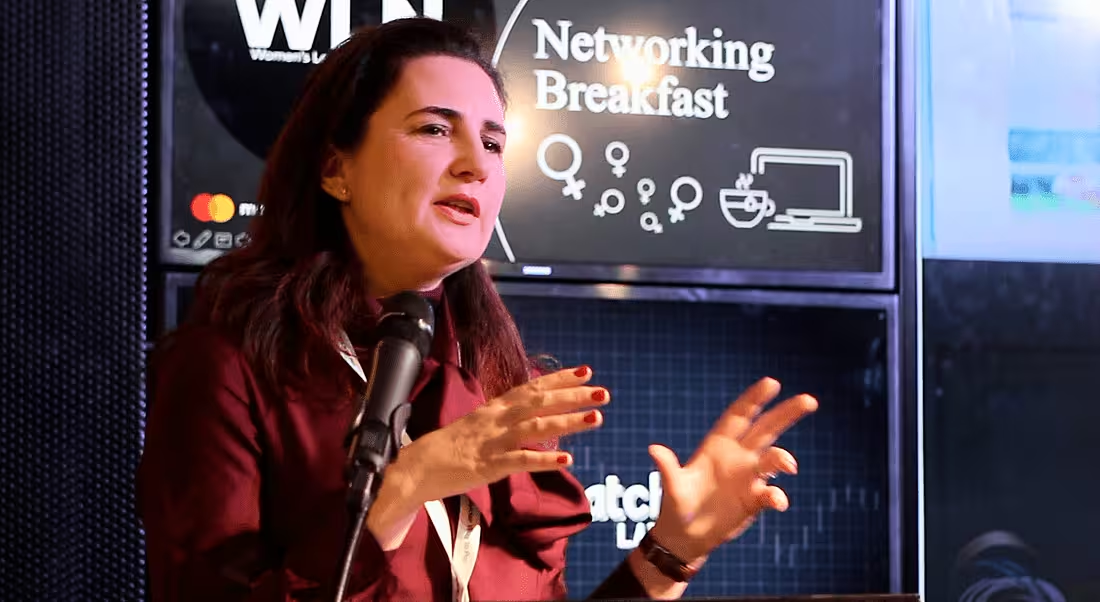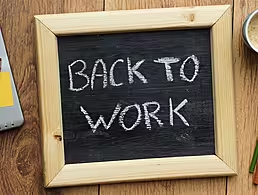Trying to return to the workforce after a career break alerted Ciara Garvan to the limitations of the traditional nine-to-five system. Through WorkJuggle, she hopes to change this.
Ahead of International Women’s Day 2018, women came together at a networking event at Dogpatch Labs hosted by Mastercard Ireland’s Women’s Leadership Network to discuss whether the ways of the working world best served talented women.
Though all coming from different professional backgrounds, many of the women who presented at the event had one thing in common: they returned to work after a prolonged absence and realised that new and innovative approaches have to be implemented to enable talented women to smoothly transition back into the workforce.
Finding work that worked for her
Ciara Garvan found WorkJuggle in 2017 based on her own experience of trying to enter back into the workforce after having three children.
She had worked in IT for many years prior to taking time out and, while her skills were definitely in demand, she still encountered difficulty trying to find the kind of work she was looking for.
“[I found it hard] to find out information about the culture of the companies and find out was there any possibility of flexible work.
“Not really necessarily a three-day week, but was it possible to do remote working occasionally, or just to get a real feel for the company before you’re at the final interview stage and, really, you feel they’re the questions you can’t really ask.”
The flexible working revolution
Through founding WorkJuggle, Garvan discovered that there was a large contingent of highly skilled workers seeking similarly flexible arrangements.
Gone are the days in which employees felt like moulding themselves around the classic working week schedule was a necessity. It is the dawn of the age of workers wanting work that works for them and, as Garvan highlights, the smart employers are the ones responding effectively to the need for flexibility.
“It is really tight on the talent front, and I think … particularly people who have had any kind of flexibility before, they generally do not go back to a very structured Monday-to-Friday, nine-to-five role.
“If you’ve had the experience of working remotely occasionally, then that’s just part of your way of doing things and that becomes your new normal.”
Dipping into an underserved talent pool
Garvan works primarily with two kinds of companies; one is large multinationals, tech in particular.
Diversity and inclusion are top priorities for recruiters in these firms because of the well-understood and multifaceted benefits of embracing these, both to company culture and to the bottom line.
Yet big players aren’t the only ones willing to embrace innovative approaches to work. Small firms that maybe can’t afford to retain a highly skilled employee full-time are getting on board too, and finding that it has a massive positive impact on the type of talent coming through their doors.
“When [they] hire somebody three days a week, what they tend to see coming through are candidates who are punching above their weight.
“They get people who have really great experience who wouldn’t necessarily have looked at that company before but if they’re offering something on three days a week, well then [candidates are] interested.
“If [these companies] are doing something that’s different and innovative in their working practices, then what else are they doing that’s different and innovative? Maybe that’s much more interesting than I might previously have thought.”
Becoming a flexibility-friendly workplace
Given that the benefits are manifold, many companies will likely want to jump aboard the flexible working train themselves and start recruiting new people on this basis. But what needs to be in place in order to make that possible? Garvan doesn’t think it needs to be especially complicated.
“If people just say for a particular role, ‘open to flexibility’, because flexibility means different things to different people. Some people have terrible commutes, some people have childcare issues … it means different things to different people.”
Ultimately, the key to attracting candidates that desire flexibility is making it known that they can have a conversation with their employer about how to change the work schedule to suit their unique situation.
“You don’t feel like you’re going cap in hand, ‘Could you please?’, ‘Would you mind?’ – don’t feel like you’re trying to contort yourself to make it work.”
In turn, it’s important for the employee to know what they need and to be able to approach their employer with a specific action plan outlining what would work best for them.
‘Bums on seats does not equal productivity’
Garvan reiterated a quote from Gaby Hinsliff’s Half a Wife in her presentation at the Mastercard Ireland event: “The belief that bums on seats equals profitability is as hopelessly ill-adapted to computerised, knowledge-based industries as horses were to warfare in the age of the tank.”
The traditional working week is now becoming outmoded, and the fact that more employees feel empowered to ask for work that works for them means that companies that resist these changes will find themselves, as Garvan points out, “losing out in the war for tech talent”.
She continued: “On Workjuggle.com, we have companies registering every day, and what they’re finding is, they’re just getting a fantastic candidate pool coming through because they have that bit of flexibility and they’re open to it.”




